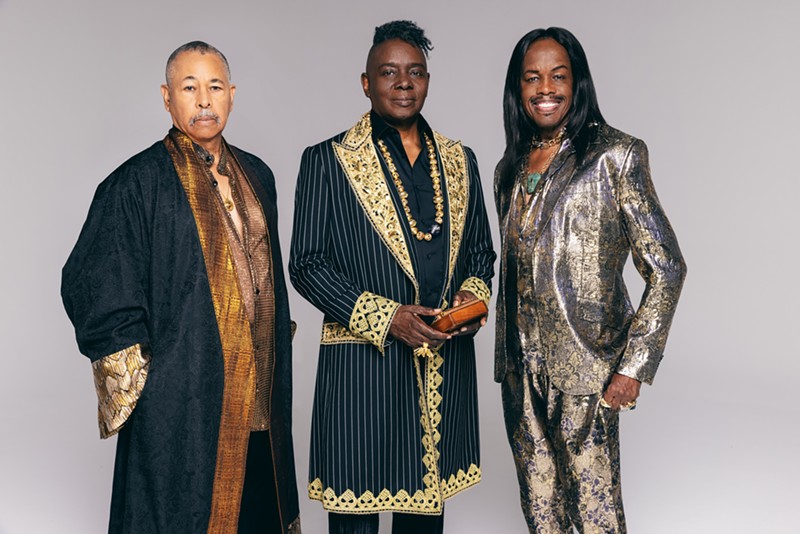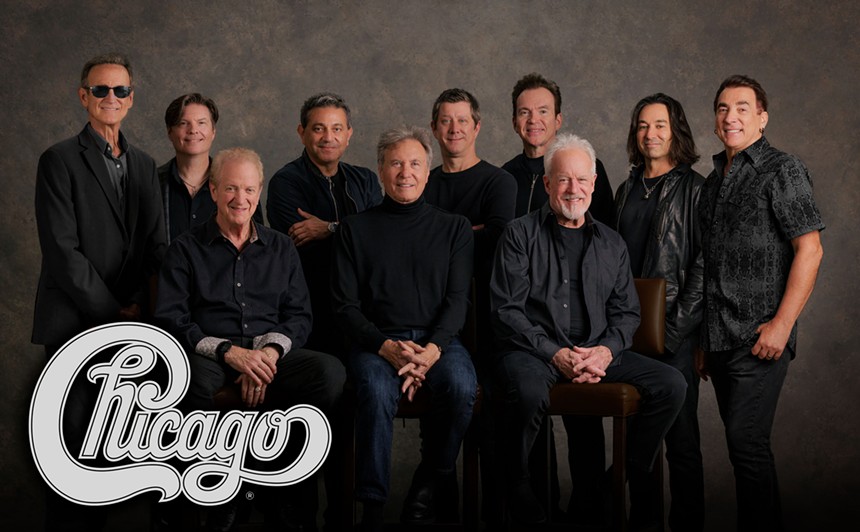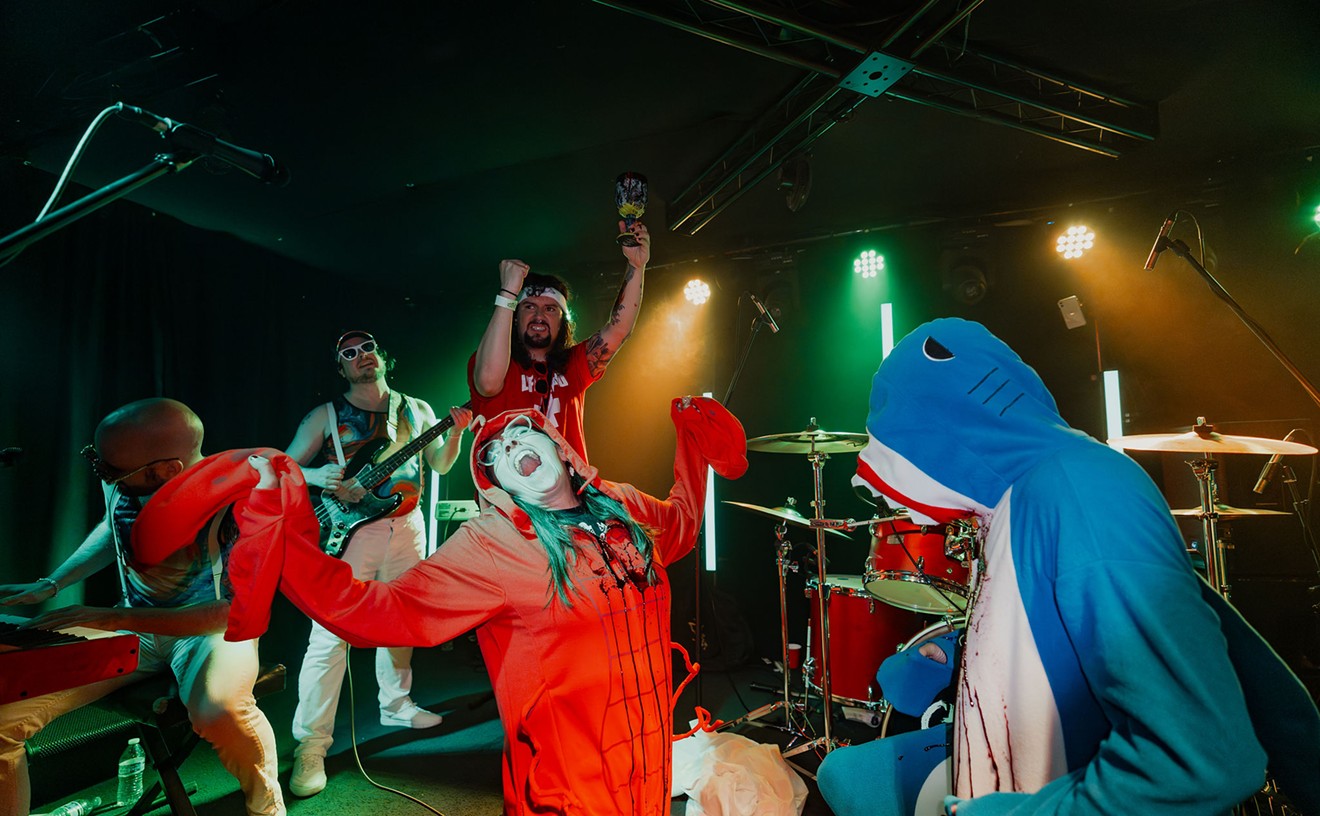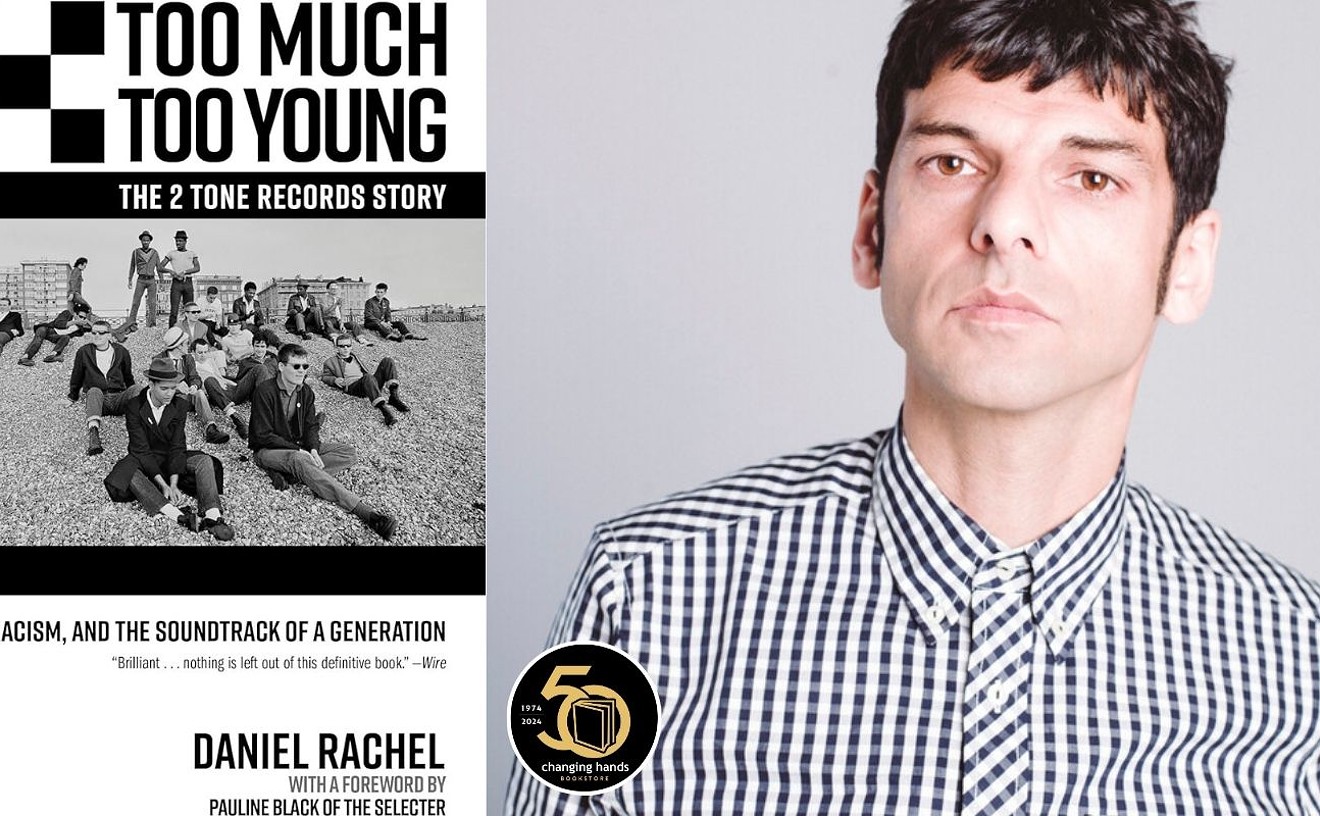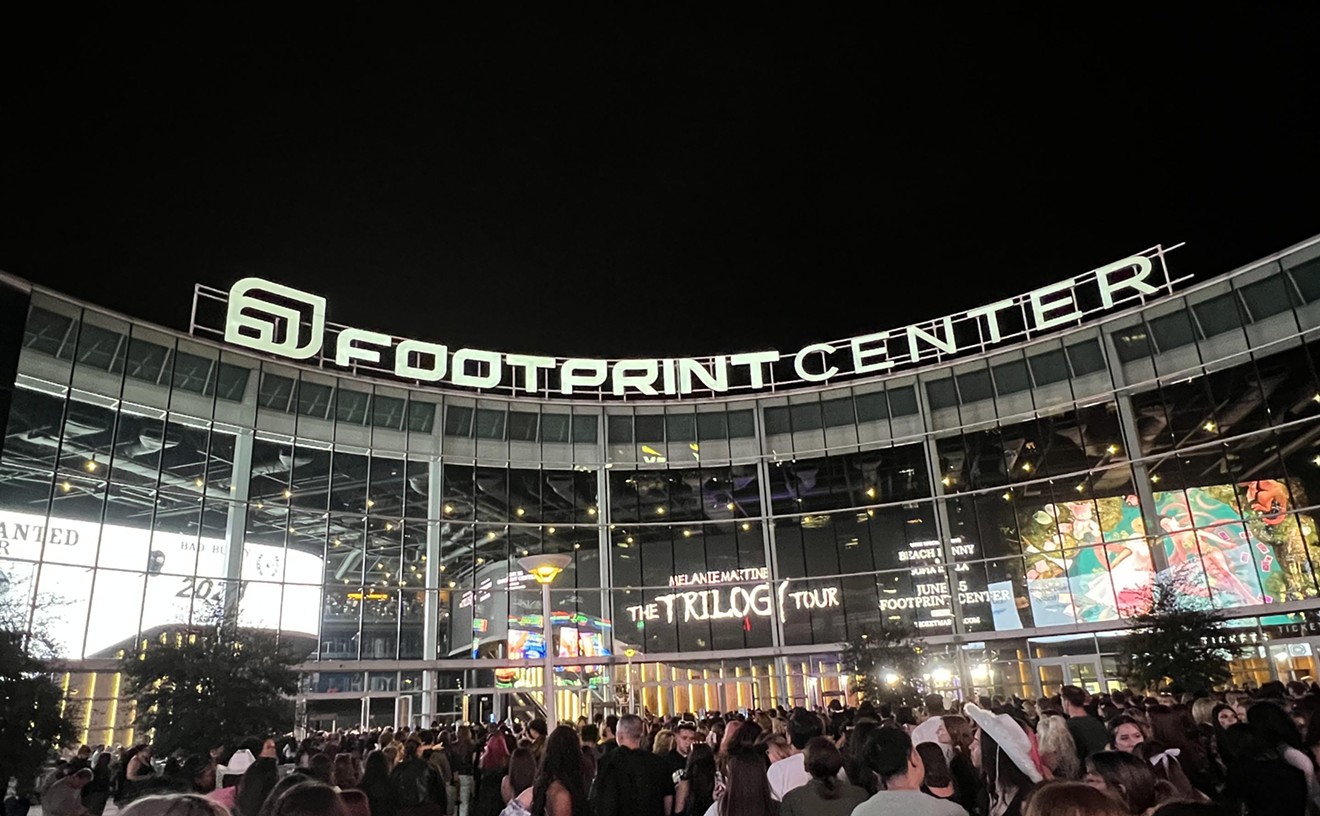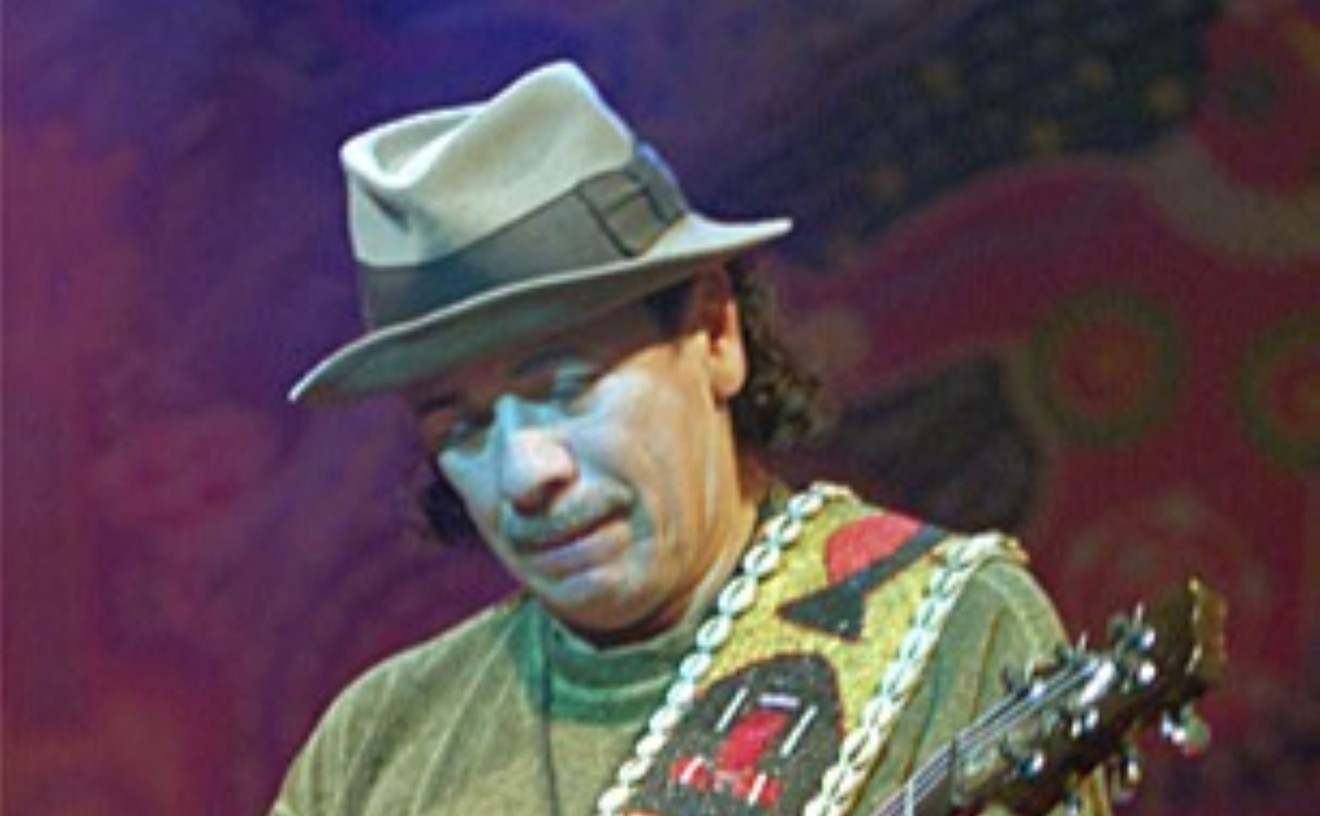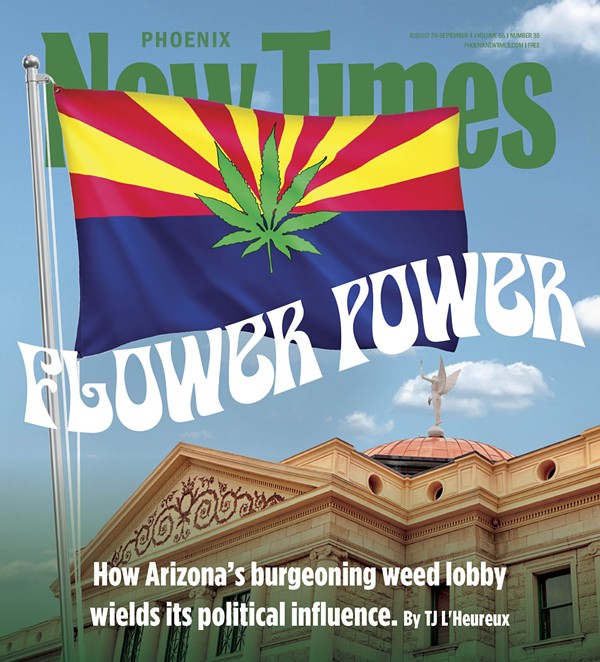(Editor's note: Chicago and Earth, Wind & Fire will perform on Thursday at Footprint Center in downtown Phoenix. Here's an interview we published in 2015, the last time both bands stopped in the Valley together.)
Musical tastes of a culture, country or world vary, but success translates across languages.
Record sales don't lie when it comes to establishing commercial success. And if longevity is thrown in for good measure, those rare talents whose catalogs, stage presence and good fortune persevere over decades should be considered great.
Such is the case made for the groups Chicago and Earth, Wind & Fire.
The two icons of pop-crossover hits spanning nearly a half-century are touring together and making a stop in Phoenix at Ak-Chin Pavilion on Tuesday, July 21, on their Heart & Soul Tour. With close to 200 million records sold between them, the two bands, who have endured multiple lineup changes, no doubt will acquire some new fans as the new 26-show tour begins.
At the center of the two legendary groups is a core of founders still leading the group. Verdine White, bassist for EWF, and Lee Loughnane, trumpeter for Chicago, are each originators of their respective groups. And while it seems on the surface they each represent sounds that come from exceedingly different places culturally, the similarities they share actually have drawn them closer together.
EWF are known for their rhythm-and-blues-based love songs and upbeat pop-funk, and Chicago has built its reputation that has centered around an early experimental jazz rock style to power-ballad-based pop.
For both Loughnane and White, the future is not about making millions, but being in the moment and enjoying what they do — playing live music for fans of all ages, races, and creeds even as they defy the passage of age and time.
"When you get a chance to work with great people, such as Chicago, and it gives us a chance to continue both legacies for both bands, it’s just really a cool thing," says White, 63. "It was just one of those natural fits, you know. Both bands are from Chicago and both bands migrated to Los Angeles. We shared the same label, we both worked with (producer) David Foster, both have horn sections. It’s really a unique thing."
For Loughnane, 68, the greatest likeness is that they are still enjoying performing.
"It was a pleasure to be able to play with them the first time (2004)," Loughnane says. "To be able to do this the fourth time running (2004, 2005 and 2009) is just amazing. I mean, this kind of thing doesn't happen every day. We are genuinely looking forward to this tour. What they wanted to do was to play music for people, and that's one thing both bands share and that we both love to do today."
A key component of EWF's mix is the horn section, which would be one of their anchors and has survived many lineup changes over time. White, singer Philip Bailey and percussionist Ralph Johnson remain as the only original members, as the band have seen seven dozen musicians pass through. Today, Bailey's son Philip Bailey Jr. helps lead the way.
"It is just how beautiful the sounds of those horns are; very distinct," White says. "When you listen to Chicago’s horns, nobody sounds like them. And you had several bands come through before, like Blood, Sweat and Tears, Tower of Power and In Cold Blood. But the Chicago horn section really stood out. First of all, the guys in Chicago knew each other since school. And for (EWF) the Phenix Horns, Don Myricks, the late Louis Satterfield, and those guys went to college together, too. "
Maurice White formed EWF in 1969, and with more than a little help from his bandmates, went on to sell more than 90 million albums worldwide. In fact, in their lifetime, EWF have been honored thusly: inducted into the Rock and Roll Hall of Fame, an NAACP Image Award. This volume of validation typically is bestowed posthumously, but not for EWF. They are getting it now.
The band have also been nominated for 20 Grammy Awards, winning six as a group, and White and five-octave singer Bailey each have wins as singer-songwriters in the group. Add to that list 11 American Music Awards nominations and four awards. But who’s counting?
The group’s catalog of hits reads like a list of music’s greatest pop standards, including "Shining Star," "That's the Way of the World," "Devotion," "Reasons," "Sing a Song," "Can't Hide Love," "Getaway," "Fantasy," "Love's Holiday," "September," "Boogie Wonderland," "After the Love Has Gone" and "Let's Groove."
Their first-ever Christmas album, "Holiday," would come out in 2014, giving the band a total of 21 studio full-length albums. In total, seven of EWF's 21 studio efforts have cracked the Billboard Top 10 Album status in the Hot 100. If EWF were a baseball team, that would be an all-star .400 average.
"We are in what we call a sweet spot of our career, where we can do what we want to do, and that was fun doing a Christmas album, but it wasn’t like we had to do it," he emphasizes.
EWF’s sustaining popularity and flexible schedule have allowed the members to play for President Obama in 2009 as the first artists to play at the White House, open the 2014 Grammy Awards and play halftime of the 2014 NBA All-Star game.
More recently, the band have acclimated their sound to encompass even more interaction with their fans on stage, and with the help of some present-day industry bigs, the members have updated their approach.
"(Manager) Damian Smith got on board and he helped us reinvent ourselves, in terms of the music and approaches, and he put us in touch with great producers like will.i.am., Flo Rida, Robin Thicke and TI. We were fortunate that a lot of the younger executives really saw what we could do and take it to the next level, and bring it to us and make us comfortable with it."
The group even recently played at the hip and traditionally more alternative Bonnaroo festival recently and according to White, "tore it up," with Kendrick Lamar on stage.
A brief listing of Chicago's accomplishments will give even the most passing music fan pause as to why the group have been snubbed by the Rock and Roll Hall of Fame.
Known as "the rock ’n’ roll band with horns" since 1969, when they released their first LP under the name Chicago Transit Authority, Chicago have produced 21 Top 10 singles, five consecutive number one albums, 11 number one singles and five certified gold singles. The band would shorten its name to Chicago after the city's mass transit operations threatened legal action.
Only the Beach Boys have more records exceeding 100,000 in sales in the United States. Chicago have also seen 25 of their 36 albums become certified platinum, to go with a total of 47 gold and platinum awards.
The band started in 1967 while college students saxophonist Walter Parazaider, guitarist Terry Kath, drummer Danny Seraphine, trombonist James Pankow and trumpet player Loughnane were attending DePaul University while keyboardist/singer Robert Lamm was attending nearby Roosevelt University.
To counter the deeper baritone vocals by Lamm, the group quickly added bass player and tenor vocalist Peter Cetera, who would be the more recognizable voice of the band for the next 18 years.
What made the band so different from the sea of conventional rock bands, was their horn section. Rather than filling in the background, the group's brass was at the front of the classy rock sound of Chicago. Ironically, three-fourths of the original members are the horn section members.
"When we started playing, we incorporated the brass as a lead instrument," Loughnane says. "Jim Pankow and the songwriters left room for the brass to stretch out in ensemble form, which made the brass as important in a song as the vocals. So we brought all these different elements of music that we had been listening to into the songwriting."
By 1976, the band had become one of the top-drawing bands in the U.S., and their album "Chicago X," which included the ballad "If You Leave Me Now," would garner the band their only Grammy Award.
In the early ’80s, the band switched to a power ballad sound influenced by new producer David Foster. Capitalizing on the new popularity of keyboards, Bill Champlin would join the roster. It would culminate in the band's most successful album, "Chicago 17," in 1984, which would produce Top 10 hits showcasing Cetera's vocals: "You're the Inspiration" and "Hard Habit to Break."
Over the course of time, the band took somewhat of a departure from the power ballads and returned to their brassy roots. This was influenced by the departure of Cetera, who would focus on a short-term successful solo career. From 1991 through last year, Chicago would produce another eight albums, including a Christmas album in 1998.
Most recently, Chicago jumped back into the national stage at the 2014 Grammy Awards, where they performed several of its classic bits with Robin Thicke. On July 4 last year, the band released the aptly titled "Chicago XXXVI: Now," their first collection of original material in eight years.
And as for the Rock HOF snub?
"It's not as painful as you might think," Loughnane says. "It is unusual, I think, that we haven't been asked, but we are not the only band not to be asked to join the Rock and Roll Hall of Fame. We still do our tours and average 100 shows a year still to this day at a high level, so I don't mind having what we have."
For both legendary bands, life as career musicians has come full circle by exploring new musical ideas by returning to old work ethics for Chicago and EWF.
"It’s gone back to the basics, because back in the day labels didn’t sign artists unless they were good live," White says. "When Clive Davis signed us, he signed us because we were good live. So it’s gone back to that. If you want to be a great artist, you have to play good live."
For Loughnane and Chicago, it was much the same.
"As we've gone through the years, we started feeling maybe it was starting to be taken it for granted. We had to work through all those things and still be able to survive," he reflects. "The music that has come through us has resonated with so many generations that we have been able to grow up in many ways and come back around to where we started."

Audio By Carbonatix
[
{
"name": "Air - MediumRectangle - Inline Content - Mobile Display Size",
"component": "18478561",
"insertPoint": "2",
"requiredCountToDisplay": "2",
"watchElement": ".fdn-content-body",
"astAdList": [
{
"adType": "rectangle",
"displayTargets": "mobile"
}
]
},{
"name": "Editor Picks",
"component": "16759093",
"insertPoint": "4",
"requiredCountToDisplay": "1",
"watchElement": ".fdn-content-body",
"astAdList": [
{
"adType": "rectangle",
"displayTargets": "desktop|tablet"
},{
"adType": "rectangle",
"displayTargets": "desktop|tablet|mobile"
}
]
},{
"name": "Inline Links",
"component": "17980324",
"insertPoint": "8th",
"startingPoint": 8,
"requiredCountToDisplay": "7",
"maxInsertions": 25
},{
"name": "Air - MediumRectangle - Combo - Inline Content",
"component": "16759092",
"insertPoint": "8th",
"startingPoint": 8,
"requiredCountToDisplay": "7",
"maxInsertions": 25,
"watchElement": ".fdn-content-body",
"astAdList": [
{
"adType": "rectangle",
"displayTargets": "desktop|tablet"
},{
"adType": "rectangle",
"displayTargets": "desktop|tablet|mobile"
}
]
},{
"name": "Inline Links",
"component": "17980324",
"insertPoint": "8th",
"startingPoint": 12,
"requiredCountToDisplay": "11",
"maxInsertions": 24
},{
"name": "Air - Leaderboard Tower - Combo - Inline Content",
"component": "16759094",
"insertPoint": "8th",
"startingPoint": 12,
"requiredCountToDisplay": "11",
"maxInsertions": 24,
"watchElement": ".fdn-content-body",
"astAdList": [
{
"adType": "leaderboardInlineContent",
"displayTargets": "desktop|tablet"
},{
"adType": "tower",
"displayTargets": "mobile"
}
]
}
]

